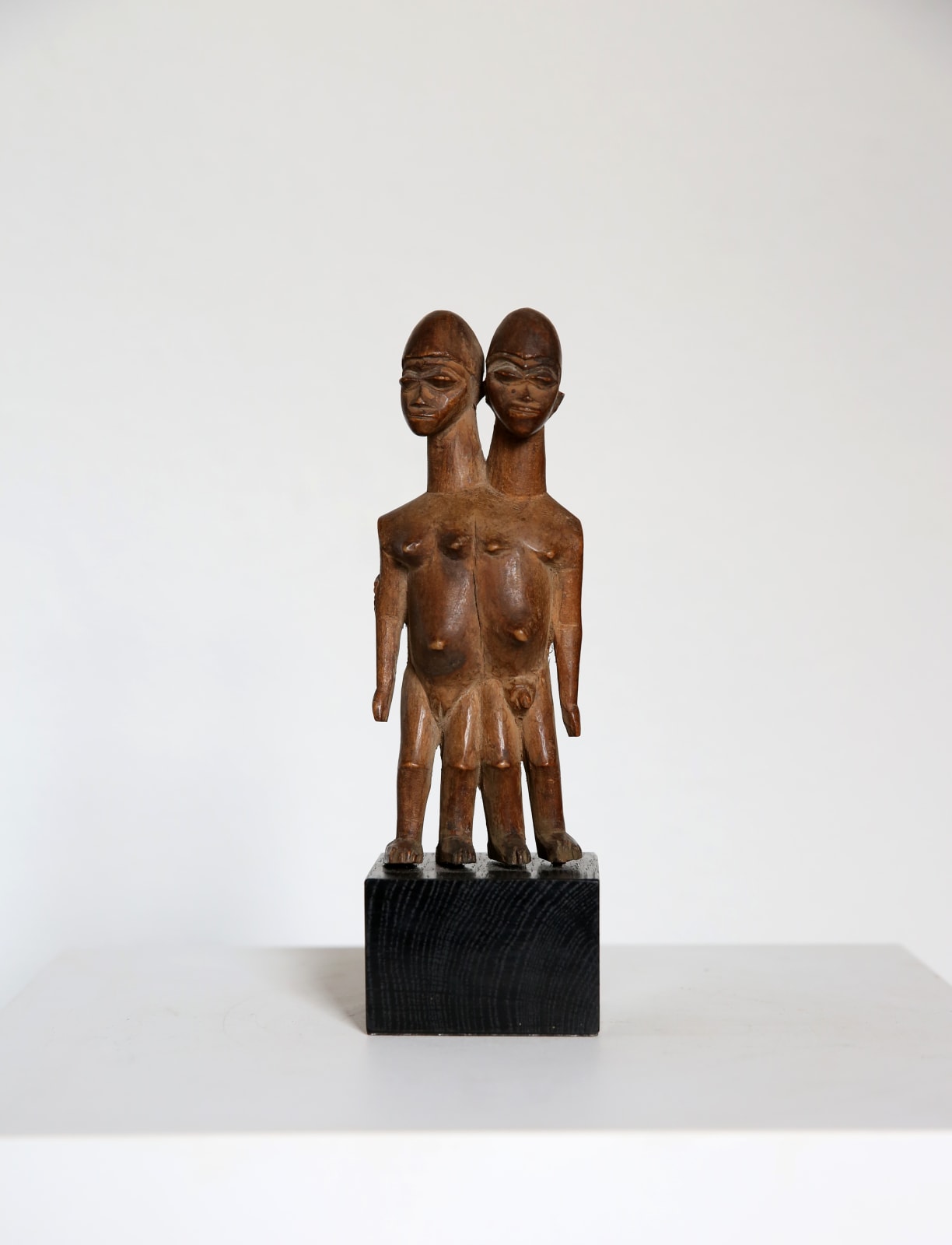Anonymous Lobi artist
Mid 20th century
Wood
height 6 1/4 in
In Burkina Faso, Lobi sculptors create male and female figural couples for use by professional diviners and for domestic shrines. In Lobi society, immaterial spiritual divinities, called thila, are responsible for overseeing a community’s well-being. In their efforts to maintain political, social, and moral order and provide protection against withcraft and sorcery, thila communicate through diviners they have selected as intermediaries. When an individual consults a diviner concerning misfortunes inflicted by spirits, thila may direct that a shrine figure be carved as part of the remedy and provide the formal requirements for its appearance. The sculptural works created for residential or public shrines may suggest a physical form for the thila. Known as bateba, they afford an extended family a protective line of defense, preventing the entrance of evil into a household. The Lobi couples that serve diviners in their practice are relatively small. While most couples are carved separately, the bodies of a handful examples are joined at the torso. In a loving gesture the male statue holds his arm around his wife. Both man and woman are portrayed in the same style, with an equal height. Man and woman are united to keep harmful forces at bay. The Mead Art Museum at Amherst College owns a Lobi couple sculpted by the same artist (#AC.1999.63). The German Lobi collector Stephan Herkenhoff has identified 21 statues from this hand, and given the artist the nickname the “Master of the heart-shaped face”.
Provenance
Private Collection, Germany
Private Collection, Ghent, Belgium, 2023
